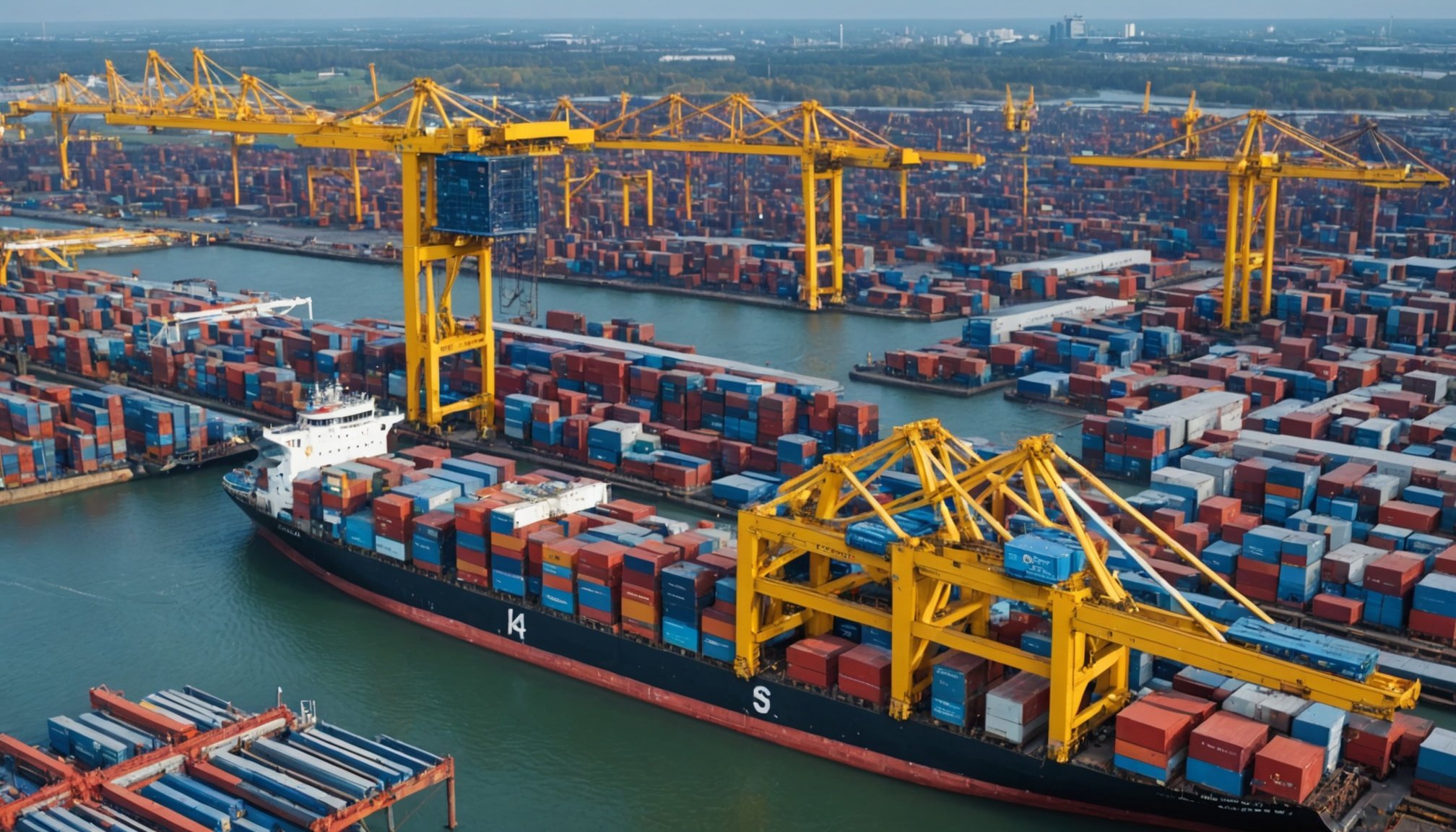Overview of Sustainable Supply Chain Practices
Sustainable supply chain practices encompass strategies to enhance environmental, social, and economic performance throughout the lifecycle of products. It is crucial because it combines responsible sourcing, waste reduction, and energy efficiency—fostering a more sustainable model. The integration of sustainability metrics aids in assessing these processes efficiently.
The significance of a sustainable supply chain lies in its ability to reduce negative environmental impacts while promoting corporate responsibility. Some key principles include resource stewardship, pollution prevention, and circular production. These factors contribute to the company’s financial performance, improving brand image and competitiveness.
Also read : Essential recovery tactics for uk travel agencies in a post-covid landscape
In the current landscape of supply chain sustainability in the UK, businesses are increasingly incorporating integration practices. They adopt a combination of sustainability metrics for comprehensive insights into their environmental footprint. This includes regular monitoring and reporting of energy consumption, carbon emissions, and waste generation.
Sustainable supply chain implementation has resulted in diverse methodologies. UK companies often focus on local sourcing and lean logistics to optimise operations for sustainability. By embracing these practices, organisations can reduce transportation emissions and foster resilience. Collaboration among stakeholders is also pivotal, as it ensures a unified effort towards achieving sustainability goals.
Also to discover : Essential tactics for uk construction firms to masterfully adopt bim technology
Innovative Approaches to Sustainability in UK Supply Chains
Innovative methods in UK supply chains are transforming sustainability realities. Technological advancements are at the forefront, significantly impacting sustainable supply chains. AI-driven logistics and IoT sensors are examples utilised in the UK, enhancing energy efficiency and reducing unnecessary emissions through precise data analysis. Future trends indicate further integration of blockchain for transparent tracking and energy-efficient AI algorithms to optimise routes and supply levels.
Collaborative Strategies
Collaborative strategies are vital for advancing sustainable supply chains. Partnerships foster shared knowledge and resources, leading to innovative methods for tackling sustainability challenges. A notable case is the collaboration between retail giant Tesco and WWF in the UK, focusing on reducing plastic usage and improving recycling. Successful partnerships are often built on shared goals, open communication, and mutual benefit.
Circular Economy Practices
The circular economy concept aims at eliminating waste and promoting the continual use of resources. In the UK, businesses like Unilever are adopting such practices by designing products for extended use and recycle capability. While the benefits include resource efficiency and reduced environmental impact, challenges lie in existing infrastructure adjustments and consumer behaviour adaptation. Circular approaches demand innovation in product design and business models, making sustainability a tangible target.
Industry Challenges to Sustainable Supply Chain Integration
The journey towards a sustainable supply chain is rife with challenges. Companies often face formidable barriers to sustainability, mainly due to complex supply networks and stringent cost structures. For many businesses, initial investments in sustainability can appear daunting, discouraging implementation efforts.
In various UK industries, sector-specific challenges intensify these barriers. For instance, the manufacturing industry struggles with high resource consumption and waste generation, demanding significant adjustments to traditional practices. Meanwhile, the retail sector grapples with fast-paced, consumer-driven demands that complicate sustainable logistics.
Regulatory frameworks significantly influence these efforts by setting the playing field’s rules. In the UK, evolving regulations, such as those imposed by the Environmental Agency, create additional layers of compliance for businesses. Adapting to these regulations requires companies to reassess and modify operations continuously.
Understanding these challenges is crucial in crafting effective solutions and advancing sustainable integration strategies. Tackling these barriers can lead to innovation and improvement, providing businesses with the opportunity to redefine their market positions while ensuring long-term environmental benefits. As the landscape becomes more complex, the ability to adapt to legal and operational shifts remains paramount for sustainable growth.
Metrics and Frameworks for Assessing Sustainability
The use of sustainability metrics is critical in assessing performance in sustainable supply chains. By leveraging quantitative indicators, companies can evaluate the environmental, social, and economic impacts of their supply chain practices.
Key Performance Indicators (KPIs)
Key Performance Indicators are essential for measuring sustainability effectiveness. In the UK, companies focus on KPIs such as carbon footprint reduction, waste management efficiency, and energy consumption. These metrics provide valuable insights into supply chain performance. By analysing KPI trends, businesses can identify areas for improvement and align their operations with sustainability objectives.
Sustainability Reporting Standards
Reporting standards like GRI and SASB play a pivotal role in sustainability initiatives. They offer frameworks for transparent disclosure of sustainability efforts. UK companies adopt these standards to communicate their environmental and social impact effectively. This enhances trust with stakeholders and ensures regulatory compliance.
Tools and Software for Sustainability Assessment
The adoption of sustainability assessment tools facilitates precise measurement of supply chain practices. Examples in the UK include software solutions for tracking carbon emissions and resource usage. These tools empower organisations to make data-driven decisions, improving overall sustainability. As technology evolves, the future of assessment tools promises even greater integration and refinement.
Benefits of Sustainable Supply Chain Integration
Embracing sustainable supply chain practices can yield significant business benefits. Economically, these approaches often lead to cost savings through reduced waste and enhanced efficiency. By integrating sustainability, companies can enjoy a competitive advantage by aligning with growing consumer demand for environmentally responsible products.
The environmental implications are profound, as sustainable supply chains actively reduce carbon footprints, conserving resources and mitigating climate change. These practices also foster positive social impact, promoting fair labour conditions and ethical sourcing, which can enhance a company’s reputation and consumer trust.
In the long term, engaging in sustainable practices can lead to improved resilience and adaptability. As global challenges like resource scarcity and regulatory pressure intensify, businesses with robust sustainable supply chains are better equipped to navigate these complexities. The sustainability impact extends beyond immediate gains, creating a foundation for innovation and future success.
By investing in sustainable supply chain integration, businesses not only align with environmental goals but also position themselves as leaders in corporate responsibility. This holistic approach ensures sustainability isn’t just an ethical choice but a strategic imperative for long-term growth and environmental stewardship.



